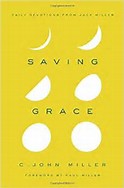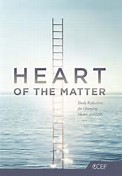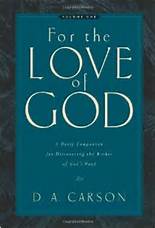Part of healthy church life is faithful expository preaching. In fact, one could say that expository preaching is foundational to the life and health of any local congregation.
Much is written for preachers to help them prepare biblical, expository sermons. One would think that listening to them wouldn’t require much instruction. After all, everyone should already know how to do that.
Years ago, Mortimer Adler wrote How to Read a Book. Material abounded to help authors write books, but Adler demonstrated that just because someone possesses the mechanical skill to read a book doesn’t necessarily mean he has the ability to comprehend it. In the same way, just because someone possesses the mechanical ability to hear doesn’t necessarily mean that he is able to listen to a sermon.
What Is a Sermon?
The concept of sermons and preaching has entered the vernacular of our conversation in many ways. When someone is trying to tell us what to do, we might tell him “Quit preaching at me!” Or we might describe his attempt at persuasion as “sermonizing.”
For now, we might define preaching as “proclaiming, explaining and applying the Bible” and a sermon as “a particular event of preaching.” Given those definitions, it is still quite possible that someone might tell the one delivering a sermon “Quit preaching at me!” You’ve quit preaching and done gone to meddling… And it is still quite possible for a preacher to be guilty of sermonizing. It is also quite possible that those who think they are delivering sermons are actually more soporific than watching paint dry.
What might also be helpful for would-be sermon listeners would be a series of instructional articles including How to Tell Good from Bad Sermons, How to Listen to a Bad Sermon, and How to Wake from Dozing During a Bad Sermon and Make Others Believe You Were Listening. For now, it might be appropriate to talk about what sermons are not.
A SERMON IS NOT A MUSIC VIDEO
I know. This comparison may be lost on those to whom music video is just as anachronistic as “butter churn” or Vitalis. But the medium of communication inaugurated by the music video shaped entertainment and limited the collective attention span in a…er, what was I talking about?
We should not expect a sermon to last from 3 ½ to 5 minutes or have great special effects, heavy make-up, pyrotechnics, or teased hair. The preacher should not enter the pulpit through the mist and smoke created by a fog machine.
Some say that the modern audience is no longer able to focus on an average-length sermon. But the content of a proper sermon is infinitely more valuable than a music video, an episode of Law & Order, or even the three-hour finale in the swan song of American Idol. If we can sit through those, we can pay attention to a 30-, 45-, or (whoa!) even hour-long sermon about matters of eternal consequence.
A SERMON IS NOT A BLOG POST
In the world of constant, rapid change, blogging is old news. It’s also sort of like a navel: everybody’s got one. They can also be anonymous, untrue, and vicious, which are not the sort of things with which to compare sermons.
But sometimes our temptation is to treat sermons the same way. The preacher might use the (anonymous) material of another preacher, throw assertions out without foundation and let the proverbial comment stream go wild until – after 732 posts – the thread is finally exhausted because the people are, too, and no one remembers what set the whole thing off.
A SERMON IS NOT A TEXT MESSAGE
A prchr cnt rdc t msg 2 its strppd cmpnts & xpct 2 b bff 4vr w/t cngrgtn.
A SERMON IS NOT A TWEET
But, if it were:
10:17 a.m. – Walking to the pulpit.
10:18 a.m. – opening the Bible. Turn to James 1:16-18.
10:19 a.m. – What good is God?
10:24 a.m. – Sorry, been in the bathroom (swine flu).
10:26 a.m. – Walking stage left and gesticulating: Stand firm in trials.
10:45 a.m. – Battery went dead; had to recharge
10:52 a.m. – Out of cell range for a while…
11:04 a.m. – Genuflecting: Pray with me.
A sermon is not a book, an owner’s manual, or a Idiot’s Guide to whatever. It is the proclamation of the word of God to the people of God through the man of God whom He has called and equipped for that purpose.
So, dmnd gd srmns that prclm Gd’s wrd. BFF, lol, CU ltr.








 everyone seems to be selling the dream of easy money.
everyone seems to be selling the dream of easy money.